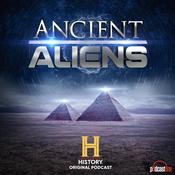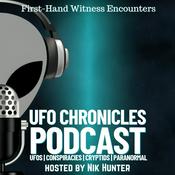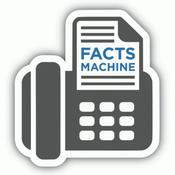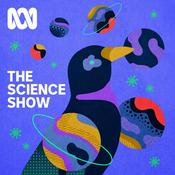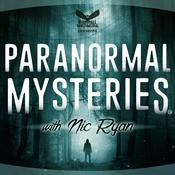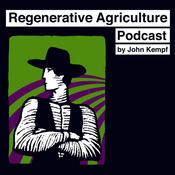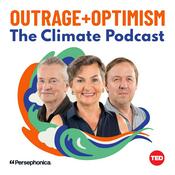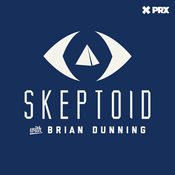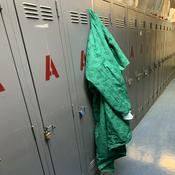664 episodes
- There are benefits to chilling out. When we cool superconductors to 460℉ degrees below zero, they acquire extraordinary properties that help run quantum computers. Can artificially cooling human bodies also provide profound benefit? Some cryonics startup companies say yes, promising “life after death” through cryogenic freezing. While it’s one thing to freeze all the cells in a body, it is another to revive them. What happens, for instance, to memories when brains thaw? While we gauge how low human body temperatures can go, new research suggests another form of life could find home in the cooler temperatures of Jupiter’s moon Europa. Find out how NASA’s Europa Clipper mission will investigate whether that moon could support alien microbes.
Guests:
Steve Austad – Distinguished Professor at the University of Alabama at Birmingham and Scientific Director of the American Federation for Aging Research
Olivia Lanes – Global Lead for Quantum Content and Education at IBM Quantum
Austin Green – Post doctoral research associate at Virginia Tech University, and former JPL postdoctoral fellow and affiliate scientist on Europa Clipper
Featuring music by Dewey Dellay and Jun Miyake
Big Picture Science is part of the Airwave Media podcast network. Please contact [email protected] to inquire about advertising on Big Picture Science.
You can get early access to ad-free versions of every episode by joining us on Patreon. Thanks for your support!
Correction: An editing error caused a mistake in describing how cold affects inflammation. Contrary to popular belief, at least one study found that cold increases inflammation, at least in the short term.
Learn more about your ad choices. Visit megaphone.fm/adchoices - Every second, lightning strikes 50 to 100 times somewhere. It can wreak havoc by starting wildfires and sometimes killing people. But lightning also produces a form of nitrogen that’s essential to vegetation. In this episode, we talk about the nature of these dramatic sparks. Ben Franklin established their electric origin, so what do we still not know? Also, why the frequency of lightning strikes is increasing in some parts of the world. And, what to do if you find someone hit by lightning.
Guests:
Thomas Yeadaker – Resident of Oakland, California
Chris Davis – Medical doctor and Assistant Professor of Emergency Medicine at Wake Forest University and Medical Director for the National Center for Outdoor Adventure Education
Jonathan Martin –Professor of Atmospheric and Oceanic Sciences at the University of Wisconsin, Madison.
Steve Ackerman – Professor of Atmospheric and Oceanic Sciences, University of Wisconsin, Madison
Peter Bieniek – Professor of Atmospheric and Space Science, University of Alaska, Fairbanks
Descripción en español
Originally aired September 12, 2022
Featuring music by Dewey Dellay and Jun Miyake
Big Picture Science is part of the Airwave Media podcast network. Please contact [email protected] to inquire about advertising on Big Picture Science.
You can get early access to ad-free versions of every episode by joining us on Patreon. Thanks for your support!
Learn more about your ad choices. Visit megaphone.fm/adchoices - The icy-white crust of Arctic permafrost is melting, and increased plant growth is turning the glacial north green. Metals like iron, once locked inside the ice, are leaching into hundreds of Arctic rivers, giving them an orange hue. Vivid changes may catch our eye, yet invisible shifts are also afoot. Microbes locked in the frozen ground since the age of the mammoths can now be revived when they thaw. We’re exploring the consequences of changes in permafrost, how AI may help us better understand Greenland ice loss, and get reactions from scientists about the Trump administration’s attempt to dismantle the National Center for Atmospheric Research (NCAR), one of the premier climate and weather researcher centers in the world.
Guests:
Tristan Caro – Postdoctoral Fellow, Geological and Planetary Sciences Division, California Institute of Technology
Twila Moon – Glaciologist and deputy lead scientist at the National Snow and Ice Data Center, within the cooperative Institute for Research and Environmental Sciences at the University of Colorado Boulder.
Abagael Pruitt – Biochemist and ecosystem ecologist, postdoctoral researcher at the University of California Davis
Karina Zikan – Glaciologist and snow hydrologist, PhD candidate at Boise State University
Roland Pease – Science writer and broadcaster often heard on the BBC World Service, and former presenter and host of its program Science in Action
Alan Sealls – Retired broadcast meteorologist, adjust professor at the University of South Alabama and president of the American Meteorological Society
Featuring music by Dewey Dellay and Jun Miyake
Big Picture Science is part of the Airwave Media podcast network. Please contact [email protected] to inquire about advertising on Big Picture Science.
You can get early access to ad-free versions of every episode by joining us on Patreon. Thanks for your support!
Learn more about your ad choices. Visit megaphone.fm/adchoices - It’s omnipresent on Earth and absent on the Moon. When it’s blowing sand in our eyes or frigid air down our necks, we may curse the wind, but living on a planet without it would be stultifying. Join us as we sail through a discussion with journalist and author Simon Winchester about the many practical and playful uses of wind – from boats to turbines to kites – and how it has shaped history, including the growth of civilization itself.
Guest:
Simon Winchester – Journalist and author of “The Breath Of The Gods: The History and Future of the Wind”
Featuring music by Dewey Dellay and Jun Miyake
Big Picture Science is part of the Airwave Media podcast network. Please contact [email protected] to inquire about advertising on Big Picture Science.
You can get early access to ad-free versions of every episode by joining us on Patreon. Thanks for your support!
Learn more about your ad choices. Visit megaphone.fm/adchoices - Spewing lava and belching noxious fumes, volcanoes seem hostile to biology. But the search for life off-Earth includes the hunt for these hotheads on other moons and planets, and we tour some of the most imposing volcanoes in the Solar System.
Plus, a look at how tectonic forces reshape bodies from the moon to Venus to Earth. And a journey to the center of our planet reveals a surprising layer of material at the core-mantle boundary. Find out where this layer was at the time of the dinosaurs and what powerful forces drove it deep below.
Guests:
Samantha Hansen – Geologist at the University of Alabama
Paul Byrne – Associate professor of Earth and Planetary Sciences at Washington University in St. Louis
Robin George Andrews – Science journalist and author of “Super Volcanoes: What They Reveal about Earth and the Worlds Beyond”
Originally aired May 29, 2023
Featuring music by Dewey Dellay and Jun Miyake
Big Picture Science is part of the Airwave Media podcast network. Please contact [email protected] to inquire about advertising on Big Picture Science.
You can get early access to ad-free versions of every episode by joining us on Patreon. Thanks for your support!
Learn more about your ad choices. Visit megaphone.fm/adchoices
More Science podcasts
Trending Science podcasts
About Big Picture Science
The surprising connections in science and technology that give you the Big Picture. Astronomer Seth Shostak and science journalist Molly Bentley are joined each week by leading researchers, techies, and journalists to provide a smart and humorous take on science. Our regular "Skeptic Check" episodes cast a critical eye on pseudoscience.
Podcast websiteListen to Big Picture Science, Hidden Brain and many other podcasts from around the world with the radio.net app
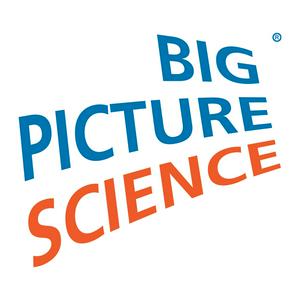
Get the free radio.net app
- Stations and podcasts to bookmark
- Stream via Wi-Fi or Bluetooth
- Supports Carplay & Android Auto
- Many other app features
Get the free radio.net app
- Stations and podcasts to bookmark
- Stream via Wi-Fi or Bluetooth
- Supports Carplay & Android Auto
- Many other app features


Big Picture Science
Scan code,
download the app,
start listening.
download the app,
start listening.











